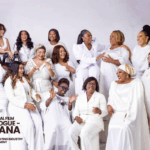
Most of us have never been to America, yet through their films, we already have a vivid picture of what life there looks like. Their cities, schools, culture, and even everyday conversations. That is the power of film. It allows us to travel without moving, to experience worlds we may never physically step into, and to imagine ourselves in places beyond our immediate environment.

In the same way, Ghanaian films have the potential to shape how others see us. Our traditions, values, humour, and struggles. A single film can become someone’s first introduction to Ghana, just as Hollywood has become many people’s first teacher about America. This is why film is not just entertainment; it is a storytelling tool, and an economic driver all at once.
The maiden National Film Dialogue, held on 16th September at the Cedi Conference Centre, has been hailed as a timely and impactful initiative.

Recently appointed as Chief Executive Officer and Executive Secretary of the National Film Authority, Kafui Danku is already setting the stage for transformation by uniting stakeholders to drive dialogue and accelerate growth in Ghana’s film industry.

Why Film Matters
Allow me to reiterate that films go beyond entertainment. It is a powerful medium that reflects and shapes society. Whether addressing social issues, exploring historical events, or creating new cultural norms, films both mirror and influence the world around us.
A Thriving Global Industry
Globally, film continues to thrive:
- In the United States, the domestic box office grossed about $8.57 billion in 2024 (Box Office Mojo).
- In Nigeria, Nollywood cinema revenues reached ₦11.5 billion in 2024, nearly 60% growth over the previous year (Vanguard).
- In India, Bollywood recorded ₹11,833 crore in 2024, one of its strongest years on record (Ormax Media).
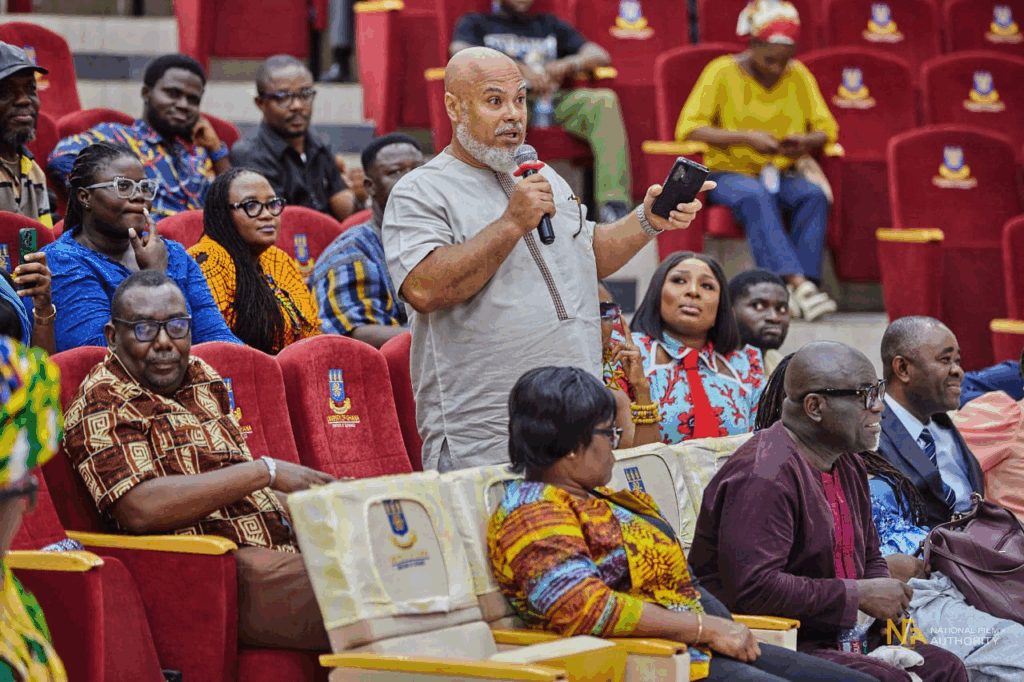
By comparison, Ghana’s film industry, though rich in talent and creativity, has yet to fully realise its potential. This makes conversations like the National Film Dialogue crucial, as they create platforms for discussions, innovation, collaboration, and a clearer roadmap for growth.
The gathering united filmmakers, producers, distributors, policymakers, academics, and international partners, all working toward the shared goal of accelerating industry development.
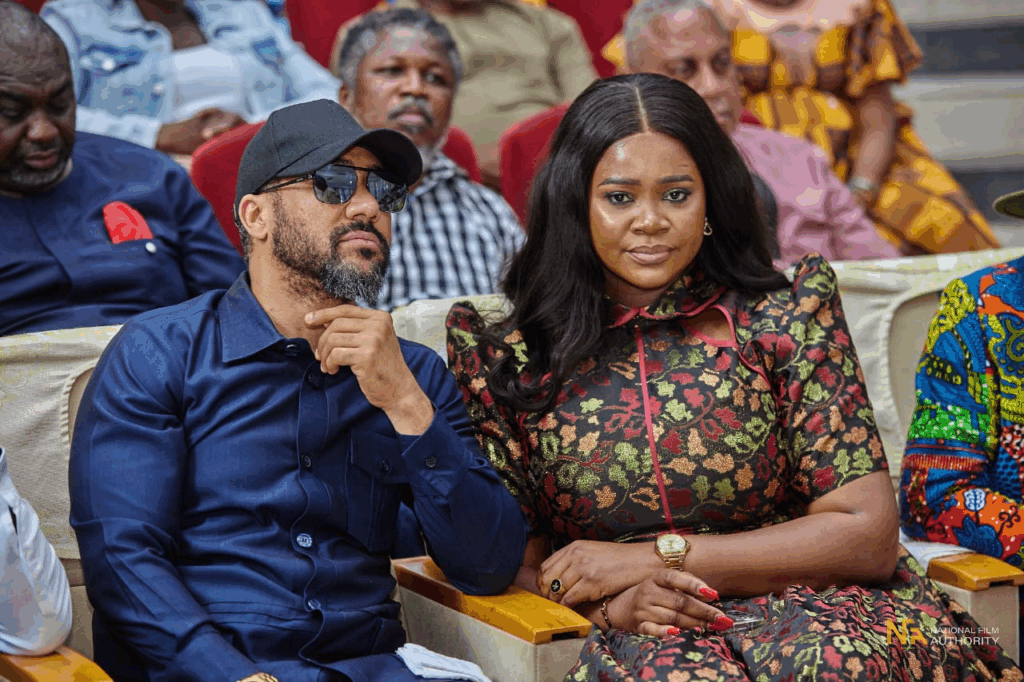
Key Takeaways from the Dialogue
The dialogue featured panel discussions and open forums where participants shared experiences, raised concerns, and offered practical insights.
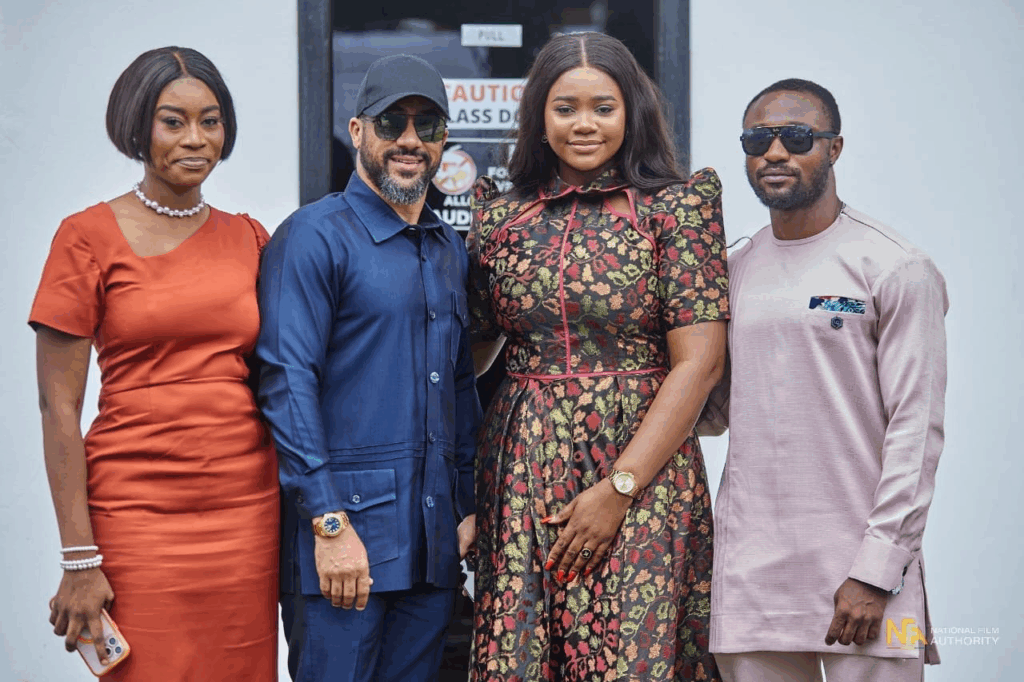
Highlights:
- Support from Hospitality: The hospitality industry was encouraged to support local productions, as this would ease one of the biggest challenges—high production costs.
- Protecting Local Content: Concerns were raised about the dominance of foreign telenovelas, especially in Twi, which risk overshadowing original Ghanaian films. Stakeholders called for stronger support and regulations to promote local content.
- The Role of Media: Stakeholders urged media houses to look beyond charging filmmakers for airtime. Instead, the focus should be on how film investments generate long-term cultural and economic returns.
- YouTube as a Starting Point: Contrary to fears, YouTube was described as a good entry platform, especially for upcoming filmmakers, since it allows creators to control both their films and their investments.
- Boosting Cinema Culture: Participants stressed the need to expand cinema interest locally, while also recognising that Ghanaian productions can achieve global relevance without compromising authenticity.

The Way Forward
There is cautious optimism about the future of Ghana’s film industry. If the energy and ideas shared at the maiden National Film Dialogue are pursued with commitment, the industry can not only entertain but also educate, create jobs, and export Ghanaian culture to the world.
The journey to revamp Ghana’s film sector has begun. With collaboration at its heart, the next chapter promises growth, resilience and global recognition.
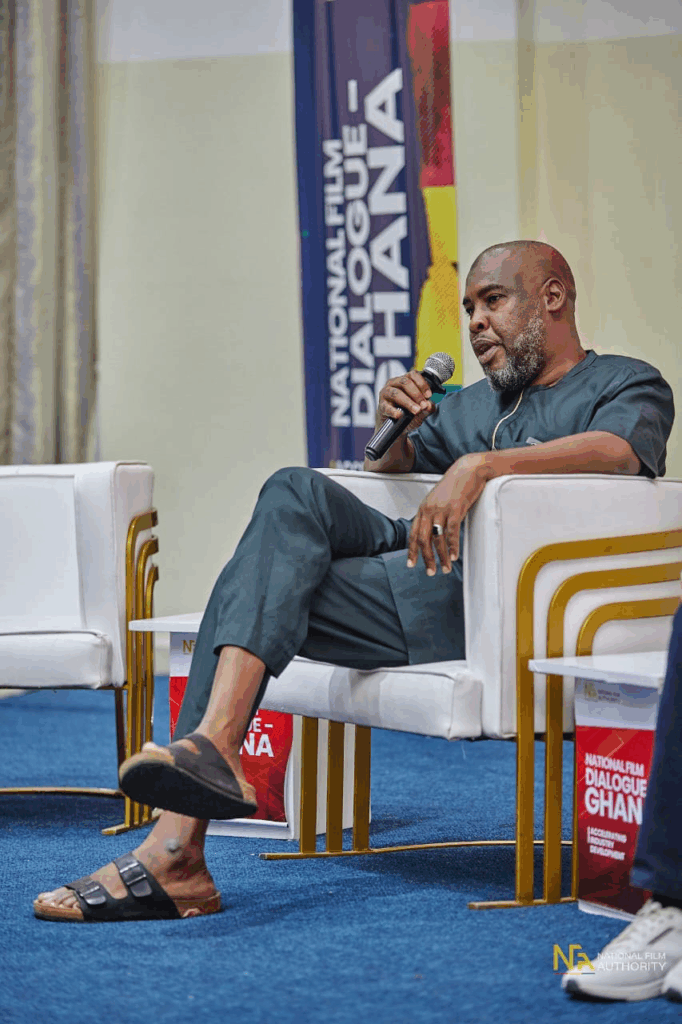
Acknowledgement
Special recognition goes to Executive Secretary, Kafui Danku, James Gardiner, Deputy Executive Director and the entire team for successfully convening stakeholders for this milestone event.
Some of the notable faces in attendance included Martha Ankomah, Lil Win, Selassie Ibrahim, Akumaa Mama Zimbi, Chris Attoh, Harold Amenyah, Fred Amugi, Gloria Sarfo, Segun Arinze, Salma Mumin, and Majid Michel, among many others.
